The German conductor Thomas Hengelbrock, named last week as principal guest of the Orchestre de Paris when Daniel Harding takes over as music director, has been given a series to present on Franco-German Arte television.
From next June, every Sunday night at 6.30, Hengelbrock will host ‘Discover Music with Thomas Hengelbrock’.
Interesting to note that Hengelbrock operates without formal management. He organises his own career.
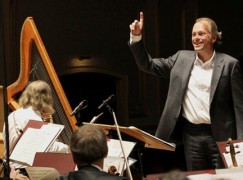
Here’s the list, hot off the stage. Most are Russians and Koreans. Kristine Balanas (pictured) is a UK-based Latvian.
| #1 |
Milyukov, Pavel |
Russia |
| #2 |
Korzhenevich, Elena |
Russia |
| #3 |
Stekolshchikova, Lyubov |
Russia |
| #4 |
Conunova, Alexandra |
Moldova |
| #5 |
Kishima, Mayu |
Japan |
| #6 |
Mo, Boson |
Canada |
| #7 |
Kim, Younguk |
South Korea |
| #8 |
Starikov, Stepan |
Russia |
| #9 |
Kim, Stephen Jee Won |
USA |
| #10 |
Lukiyanenko, Tikhon |
Russia |
| #11 |
Kim, Bomsori |
South Korea |
| #12 |
Tseng, Yu-Chien |
Taiwan |
| #13 |
Kang, Jumi |
Germany |
| #14 |
Tchumburidze, Veriko |
Georgia |
| #15 |
Kim, Jee Won |
South Korea |
| #16 |
Jang, Yoo Jin |
South Korea |
| #17 |
Kazazyan, Haik |
Russia |
| #18 |
Park, Kyumin |
South Korea |
| #19 |
Zhelezny, Leonid |
Russia |
| #20 |
Balanas, Kristine |
Latvia |
| #21 |
Avstrikh, Daniil |
Russia |
| #22 |
Khukhua, Igor |
Russia |
| #23 |
Tarara, Stefan |
Germany |
| #24 |
Pospelov, Sergei |
Russia |
| #25 |
Andersen, Christopher Tun…. Norway |

We had spotted the Austrian premiere of The Tempest this week, but missed the precedent.
It appears that Thomas Adès will tonight be the first British composer ever to take part in a performance when he conducts his own work at the hallowed house.
It is the third time in its history that the Vienna Opera has premiered a Shakespearean work. The others were by Frank Martin and Luciano Berio.
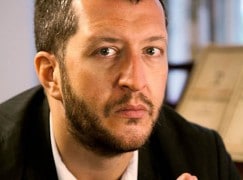
The composer Christopher Gunning has written a moving reflection for Slipped Disc on the invasion of consumer entertainments into what was once a place for musical contemplation.
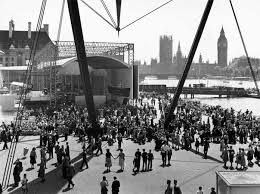
Philharmonia, Ashkenazy, Royal Festival Hall. Even though the Royal Festival Hall was only half full, it had been a magical evening with the Philharmonia and Ashkenazy giving of their absolute best in an all Sibelius programme. A special highlight was to hear that rarity, “Luonnotar,” with Helena Juntunen singing her heart out, and there were other delights too – the seldom performed Pelléas et Mélisande suite, and a selection of poignant songs previously unknown to me. In part two, the great composer’s Symphony no 2 was given a performance of enormous vitality and sensitivity which breathed Finland’s woods and lakes from start to finish.
It was one of those concerts after which you hardly dared speak, and indeed there was a time when you could wander along the river by night, thinking quietly about the music you’d just heard. You see, the South Bank is where I grew up musically; it was here I heard Pierre Monteux conducting Ravel’s Daphnis et Chloe and Stravinsky’s Symphony of Psalms. One night I heard Klemperer conducting the Brahms Requiem, and the memory still lingers. Years later, there were ground-breaking performances of his own music by Boulez, and another occasion which sticks in the mind was Kurt Sanderling conducting Mahler’s Ninth one Sunday afternoon. After that I roamed by the Thames unable to hold back tears as I watched the dark waters racing by. The list of formative events could go on and on, and even include a few occasions when I was fortunate enough to occupy the RFH conductor’s dressing room myself.
To build London’s major concert hall by the river was a stroke of genius, and we should be grateful to the Labour politician Herbert Morrison for driving the project through. When it opened in 1951, it was among the most progressive concert halls anywhere in the world, and despite various acoustic issues, it is still widely loved with its wide open spaces and sweeping staircases, the whole exuding an atmosphere of restrained dignity. But what of the area in which it now sits? Since the redevelopment in 2005-7, there has been a proliferation of bars and restaurants – I counted more than twenty. Then there’s a collection of market stalls between the hall and road, serving chocolates, ice creams and street food. Walk a little further and there are pubs and umpteen more restaurants. “Good!” you might think, it’s nice to have somewhere to go before and after a concert. But wait – few of the customers are going to a concert, a film at the NFT or a play at the National Theatre. No, they’re here to eat and drink – and to drink a lot.

Back to my Sibelius concert, with that wonderful music playing to a half-filled hall. I came out, and wanted to saunter quietly along the Thames and Hungerford Bridge. From each eatery/drinkery loud music pumped out. Ten thousand people shouted to make themselves heard above the din. Empty beer bottles and dog-ends lined the rails overlooking the river. It was no better walking along towards Shakespeare’s Globe, where another few thousand congregated to shout at one another. What I’m saying is that a boozing culture has invaded London’s prime cultural hub and frankly it’s pretty much wrecked.
I once asked a waiter in one of the eateries how often he attended a concert. “They have concerts in there?” was the reply, such is the disconnect between the venue and its environs. I thought it was okay when you could get decent food in the hall itself, and the Skylon restaurant is still good, with its fabulous river views. I like Foyles too, although I wish there were more music books. The other places? They belong in the high streets, railway stations, and airports, but not here; this shouldn’t be yet another destination for hooray henries and yobs intent on nothing more than a piss-up.
(c) Christopher Gunning, June 2015/Slipped Disc
The Russian diva has a throat infection and has been ordered to take two weeks vocal rest, until June 25.
She has cancelled a concert performance of Tchaikovsky’s Iolanta in Lucerne and, though this has not yet been announced, seems likely to miss further dates in Copenhagen, Monte Carlo and London (Royal Albert Hall).

The pre-selectors of the piano phase of the Tchaikovsky Competition have admitted 36 candidates, in place of the expected 30. The judges (below), who included Boris Berezovsky, Barry Douglas, Peter Donohoe and Alexander Toradze, whittled down 55 contenders to 35 at which point decided they could cut no further.
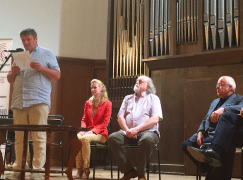
The organisers then added Nikolay Medvedev (Russia), winner of the Russian National Music Competition, without audition.
On the selectors’ discard pile were two audience favourites, Alexander Lubyantsev and Nikita Mndoyants. Despite these omissions, 22 of the finalists are Russian.
One British pianist, Alexander Ullman, got through, and two Americans – Reed Tetzloff and George Li.
There are two Germans – Maria Mazo, 32, from Hannover

and Miao Huang.
The LA Phil music director has just received the rave of his life.
Christiane Tewinkel in Der Tagespiegel came away from his Mahler first symphony feeling she had undergone ‘an overwhelming experience, a listening experience that overcomes all else.’
Her review continues: ‘Anyone who can conduct Mahler like that deserves a Nobel Prize in music.’
Read Christiane here (auf Deutsch).
The Berlin players, struggling to agree on a music director, will be regrettng Gustavo’s declared non-availability.
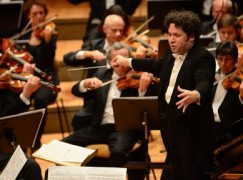
photo © Matthias Creutziger/UNITEL
The credit rating of the Metropolitan Opera is going down the drain. The house narrowly averted a shutdown of Gelb’s making. The audience is unhappy. Donations are proving hard to come by.
So the board boosted Gelb’s pay to $2.1 million, making him the most expensive opera manager on earth.
By our thumbnail calculation, the manager of the Metropolitan Opera earns around eight times the salary of the chief executive of the Royal Opera House, Covent Garden.
Their jobs are not that different. Does Gelb deliver eight times added value?
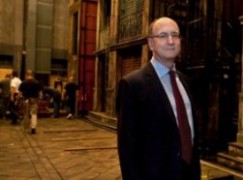
All that glitters is not Gelb
Slipped Disc editorial
Ronald Wilford’s death yesterday leaves the agency world in turmoil.
Wilford chaired and largely owned CAMI, the largest classical agency with several hundred artists on its books. In recent years he confined his activities to a tiny handful of cherished conductors but his writ ran across the company and his personality continued to dictate its policies.
Jean-Jacques Cesbron, his next in line, is Lang Lang’s manager, a businessman with more flair for show than substance. He, and the agency, have shown little interest in emergent talent and artists of depth. All the young conductors who have emerged in the past decade have taken their talents elsewhere. As far as classical music is concerned, CAMI has been in slow decline. It has forsaken its 57th Street fortress and is no longer first port of call for orchestras in search of the next music director.
That said, it still manages the careers of several hundred artists and the absence of Wilford – whose passion for classical talent was unquestioned – will shake their confidence in the giant agency.
The only other agency of comparable size, IMG Artists, is in a state of advanced disintegration with agents and stars departing on an almost monthly basis and its hapless owners powerless to stem the flood.
The two pillars of the classical music business are in disarray. These are turbulent times. CAMI has issued a ‘business as usual’ notice in the hope of stemming uncertainty. But Wilford’s death changes everything. The forces that have controlled classical music careers for as long as anyone can remember are orphaned of their emperor.
The only artists who can feel secure are those with dedicated small management and a well-defined mission.
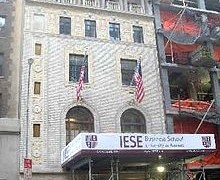
fallen towers: the former CAMI palace
For more on Ronald Wilford, read The Maestro Myth.











